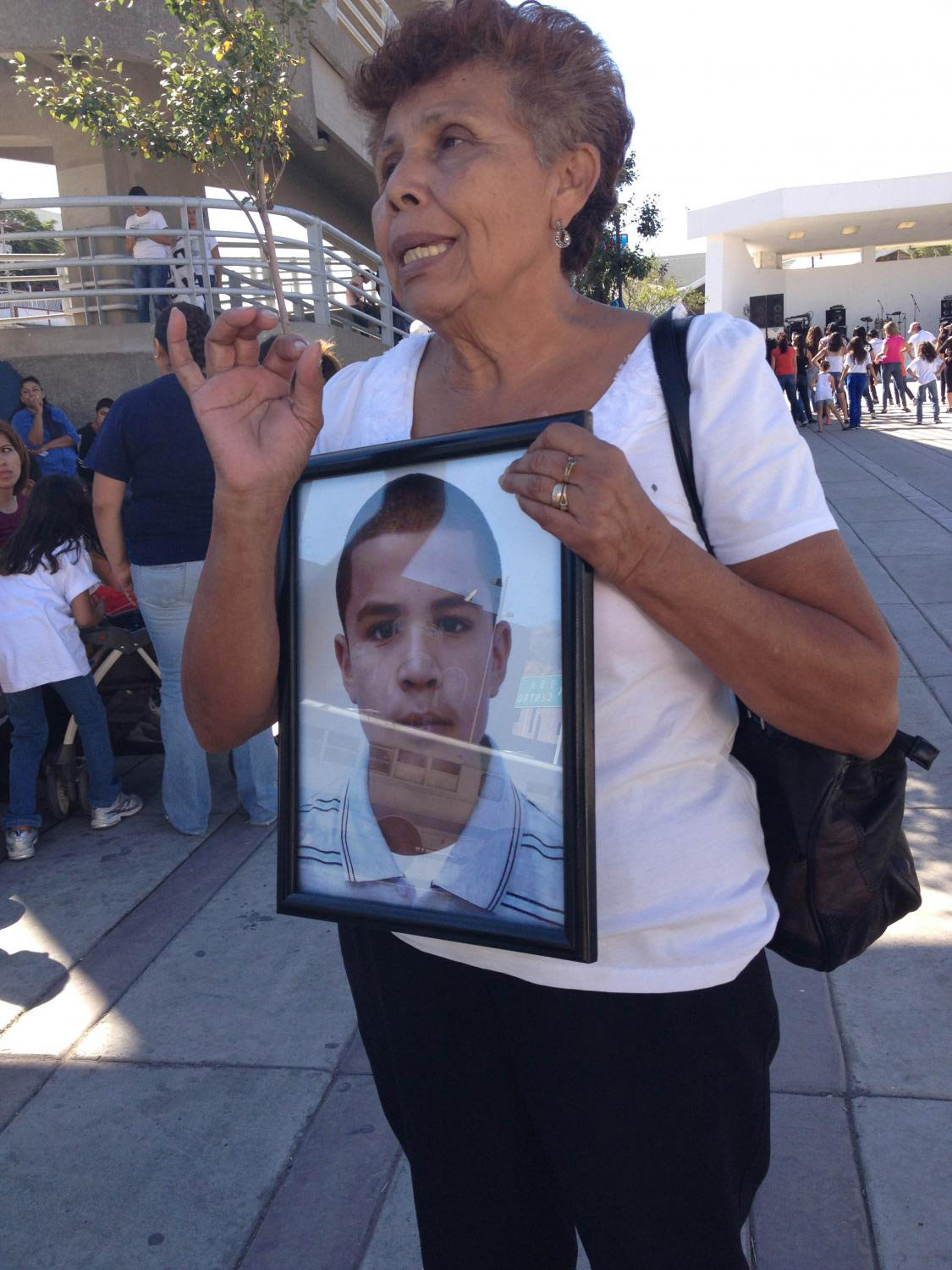 Border Patrol agent Lonnie Swartz, right, walks into federal courthouse with his attorney, April 2018.
Border Patrol agent Lonnie Swartz, right, walks into federal courthouse with his attorney, April 2018.
A federal appeals court has ruled that a Border Patrol agent who fatally shot a Mexican teen on the other side of the border doesn't have immunity and can be sued by the boy's family for violating his civil rights.
The ruling on Tuesday has wide implications and came almost two years after the agent's attorney argued he was immune from a civil lawsuit because the U.S. Constitution didn't extend to 16-year-old Jose Antonio Elena Rodriguez, who was in Mexico when agent Lonnie Swartz shot him about 10 times through a border fence.
The Border Patrol has said Elena Rodriguez was throwing rocks at Swartz, endangering his life.
After the ruling, officials with the Border Patrol union in Tucson said it will encourage more cross-border attacks on agents.
"Now you have a court ruling saying if you're a criminal and you decide to attack an American citizen by any means and that U.S. citizen decides to defend himself, the U.S. citizen could be held liable for defending himself," said Art del Cueto, head of the local Border Patrol union.
The central question in the case is whether Elena Rodriguez was protected by the U.S. Constitution as a Mexican citizen on Mexican soil.
In a very similar case out of Texas, a different appeals court has ruled that a teen boy who was also fatally shot by an agent in a rock-throwing incident was not protected by the Constitution. That case made its way to the U.S. Supreme Court, which appeared to be divided on the issue and which sent it back to the lower court without making a decision. The lower court then reaffirmed its decision that the boy wasn't constitutionally protected.
The 9th U.S. Circuit Court of Appeals said in its decision that the agent "violated a clearly established constitutional right and is thus not immune from suit."
The conflicting opinions in the different appeals courts, both of which cover cases on the U.S.-Mexico border, could mean the Elena Rodriguez case ends up back in the Supreme Court.
 VIEW LARGER Taide Elena carries a portrait of her grandson, Jose Antonio Elena Rodriguez, who was shot and killed in October 2012.
VIEW LARGER Taide Elena carries a portrait of her grandson, Jose Antonio Elena Rodriguez, who was shot and killed in October 2012. "This ruling is important both as to border shootings specifically, but more generally that the Constitution does not have a hard stop at the border," said ACLU attorney Lee Gelernt, who is representing Elena Rodriguez's mother in the civil suit. "It's an enormous victory for the family and I think for the rule of law at the border."
Swartz's attorney, Sean Chapman, did not immediately respond to requests for comment.
Elena Rodriguez was in the Mexican border town of Nogales near the international border fence when Swartz shot him from Nogales, Arizona, on Oct. 10, 2012.
An autopsy conducted in Mexico showed that Elena Rodriguez was hit about 10 times in the back.
The ACLU filed a lawsuit on behalf of the boy's mother in July 2014.
Defenders of Swartz said the ruling sends the message that the United States is open to lawlessness.
"And we're open to allowing other people to attack our federal agents and attack the individuals who are defending our borders," said del Cueto.
The case is similar to a 2010 incident when a Border Patrol agent in El Paso, Texas, fatally shot a teenager who was across the border in Ciudad Juarez, Mexico.
Agent Jesus Mesa Jr. was trying to arrest immigrants who had illegally crossed into the country when rock-throwers attacked him, according to authorities. Mesa fired across the Rio Grande river, striking 15-year-old Sergio Adrian Hernandez Guereca twice.
First ruling in favor of Hernandez Guereca's family, then against them, the case made its way to the Supreme Court last year. The high court sent the case back to the appeals court, saying it was best suited to make a decision, but that court dismissed the suit for a second time in March.
AZPM's Christopher Conover and the Associated Press' Astrid Galvan contributed to this story

By submitting your comments, you hereby give AZPM the right to post your comments and potentially use them in any other form of media operated by this institution.